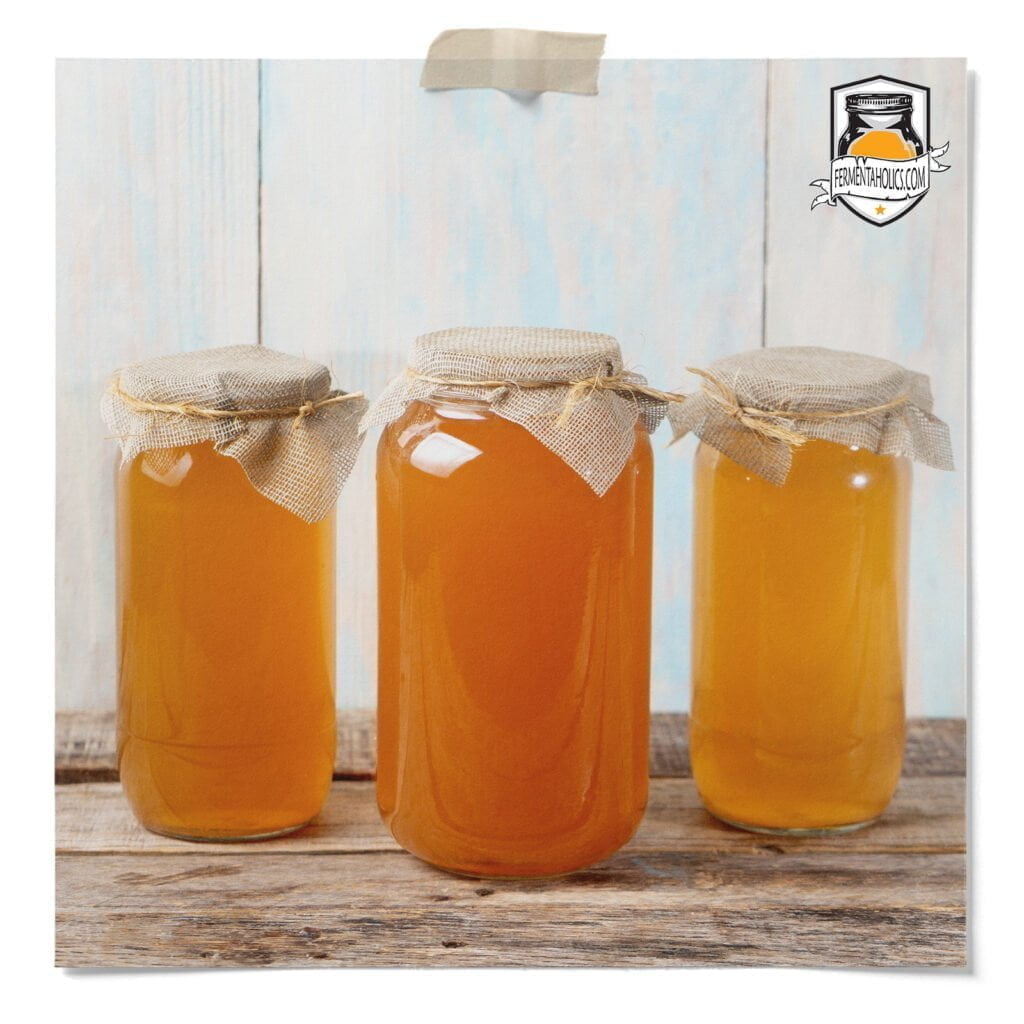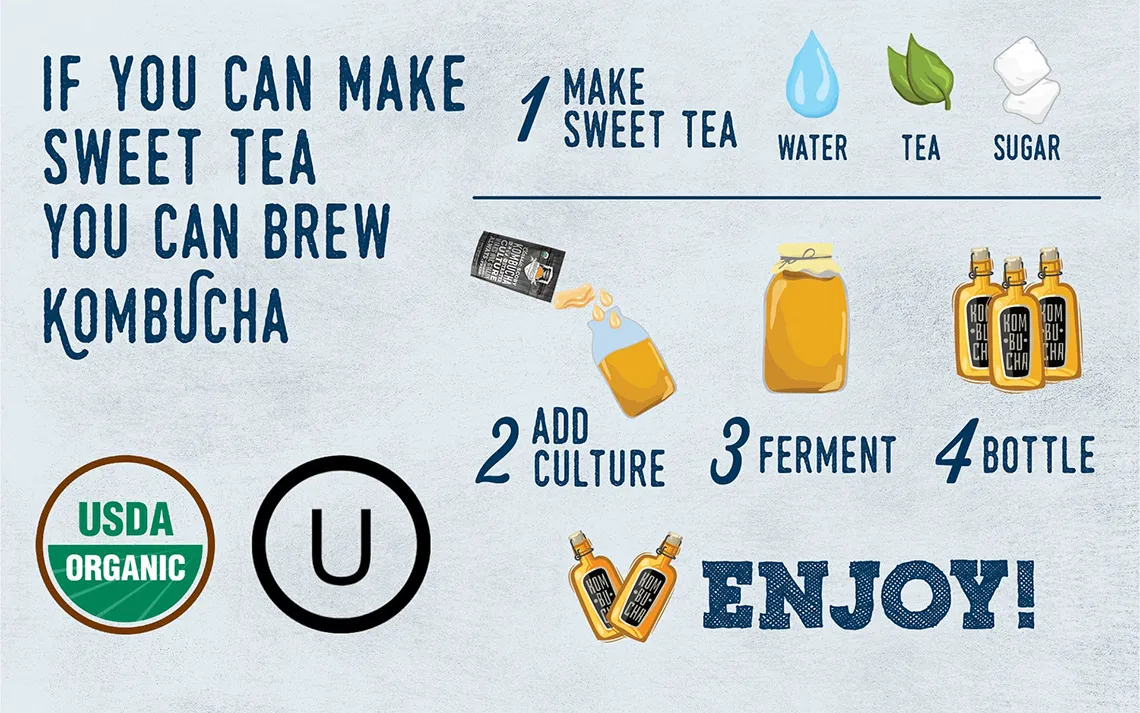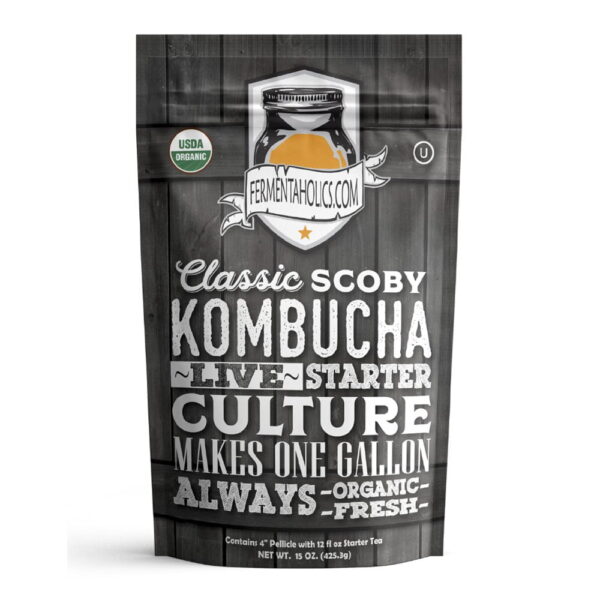
The secret’s out and kombucha is here to stay. Most will find themselves hooked after they try this slightly sweet and tart bubbly drink. If the taste isn’t enough, the health benefits of kombucha are another reason some are drawn in. With all the pros of kombucha, the one con that kombucha addicts find is the cost. Once you’re hooked, you’ll notice rather quickly the cost of store-bought kombucha can start adding up.
Depending on the kombucha brand, it can cost anywhere from $3 to $5+ a bottle. This is for one 16 ounce bottle and is the price at the time of writing this article. To make things easier, let’s call it $4 a bottle. Now, let’s say you’re drinking four bottles a week? That’s $832 a year. Now, if you’re heavy kombucha drinker, like me, you’re drinking at least a bottle a day. This would cost you $1,460 a year going the store-bought route.
Kombucha is a live fermented beverage. It’s not made as quickly as soda, where you simply carbonate water and add syrup. Anything fermented is going to take time and adds to cost. Also, once bottled raw kombucha requires refrigeration, which also drives up the cost.
There are two expenses when brewing kombucha. The first is an initial investment in brewing supplies, and the second is your brewing ingredients. So the cost really depends on what you already have on hand. It could cost as little as $15 to get going or up to $80 if you are looking to get fancy.

To start brewing homemade kombucha, you will need a few basic kombucha brewing supplies.
Initial Brewing Equipment Cost: The cost of this will depend on what you already have on hand but can range from $0.00-$80 if you’re looking to get fancy.
Now that we have all of our equipment. Let’s take a look at the ingredients needed to make kombucha. Kombucha is fermented sweet tea made with four ingredients – water, sugar, tea, and a kombucha SCOBY.

Cost Per Gallon: Once you have a SCOBY, it can cost you as little as 0.79$ a gallon plus the cost of your flavoring.
Using the above examples, if you were to drink a bottle of kombucha a day from the store, you’re looking at $1,460 a year. For home-brewed kombucha and for comparison purposes, let’s max out the investment cost and brew a gallon a week, this will yield seven 16 oz bottles and is the same as drinking a bottle of store-bought a day. Okay, so you spend $80 on the initial brewing equipment and a SCOBY, our kombucha kit here is about half this cost, and you brew a gallon a week. A gallon of kombucha a week can cost you as little as $0.79 plus flavor – let’s round up to $1. With this example, it would cost $52 a year in kombucha plus brewing equipment.
We say both, from a cost perspective, you can really save yourself quite a bit of money by brewing kombucha at home. Also, you are in complete control of your brew when going this route. You can design and make any kombucha flavor combination you can think of, not limiting yourself to what is available on the store shelf. You can also make it as sweet or as tart as you like and even make it alcoholic. There are advantages to brewing kombucha at home. Store-bought kombucha is convenient and can be picked up when needed. We find that most people shift to mostly homemade kombucha and enjoy store-bought kombucha here and there when convenient. If you are thinking about brewing kombucha, we recommend that you check out our kombucha brewing guide and well as our brewing supplies for kombucha.

Making kombucha at home can save you a significant amount of money compared to purchasing it from a store. On average, the cost of homemade kombucha is about $0.25 to $0.50 per 16-ounce bottle, whereas store-bought kombucha can cost around $3 to $5 per bottle. By brewing your own kombucha, you can enjoy substantial savings in the long run.
The main expenses when brewing kombucha at home include the initial investment in brewing equipment and the ongoing costs of tea, sugar, and flavorings. Brewing equipment such as a glass jar, cloth cover, and pH strips can be purchased at a reasonable price. Tea and sugar costs vary, but generally, the overall expenses for ingredients remain affordable.
While purchasing a kombucha starter kit can be helpful, it is not essential. You can start brewing kombucha using a few basic items such as a glass jar, a breathable cover like a cloth, a SCOBY (symbiotic culture of bacteria and yeast), black tea, sugar, and water. Starter kits provide convenience and additional guidance, but they are not mandatory to begin brewing your own kombucha.
Absolutely! Brewing kombucha at home allows you to experiment with various flavors, tea blends, and brewing techniques, resulting in a wide range of delicious and unique kombucha flavors. By customizing the fermentation process and adding different fruits, herbs, or spices during the second fermentation, you can create flavors that rival or even surpass those found in store-bought kombucha.
